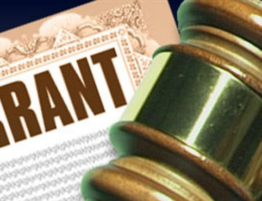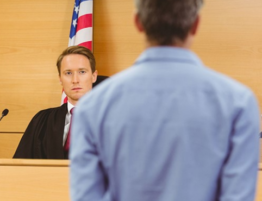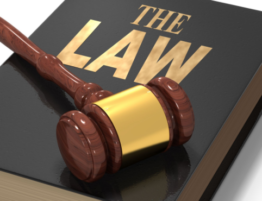What Should I Know If I Am Arrested?
What is an arrest?
When you are arrested, you are taken into custody. This means that you are not free to leave the scene. Without being arrested, however, you still could be detained or held for questioning for a short time if a police officer or other person believes you may be involved in a crime. For example, an officer may detain you if you are carrying a large box near a recent burglary site. Storekeepers also can detain you if they suspect you have stolen something.
Whether you are arrested or detained, you do not have to answer any questions except to give your name and address and show some identification if requested.
What rights do I have?
You have certain rights if you are arrested. Before the law enforcement officer questions you, he should tell you that:
- You have the right to remain silent.
- Anything you say may be used against you.
- You have a right to have a lawyer present while you are questioned.
- If you cannot afford a lawyer, one will be appointed for you.
These are your Miranda rights, guaranteed by the U.S. Constitution. If you are not given these warnings, your lawyer can ask that any statements you made to the police not be used against you in court. But this does not necessarily mean that your case will be dismissed. And this does not apply if you volunteer information without being questioned by the police.
Once I’m told my rights, can I be questioned?
You can be questioned, without a lawyer present, only if you voluntarily give up your rights and if you understand what you are giving up. If you agree to the questioning and then change your mind, the questioning must stop as soon as you say so or as soon as you say that you want a lawyer. If the questioning continues after you request a lawyer and you continue to talk, your answers can be used against you if you testify to something different.
You may be required to give certain physical evidence. For example, if you are suspected of driving under the influence of alcohol, you may be requested to take a test to measure the amount of alcohol in your system. If you refuse to take the test, your driver’s license will be suspended and the refusal will be used against you in court.
Once you have been arrested, you have a right to make and complete three free telephone calls within the local dialing area. Any additional calls made from jail must be collect calls.
When should I see a lawyer?
If you are arrested for a crime, particularly a serious one, you should contact a lawyer as soon as possible. he has a better sense of what you should and should not say to law enforcement officers to avoid being misinterpreted or misunderstood. The lawyer also can advise you or your family or friends on the bail process.
How can I find a lawyer?
If you can afford a lawyer but do not know one, ask a friend, co-worker, employer or business associate to recommend one. In addition, you may want to look for a qualified criminal law attorney.
In your search for a lawyer, you might call a State Bar-certified lawyer referral service in your area.
State Bar-certified lawyer referral services, which must meet minimum standards established by the California Supreme Court, can help you find the right lawyer for your particular situation. Most of these services offer half-hour consultations for a modest fee. (Lawyer referral service fees do vary. Don’t forget to ask whether there is a fee for the referral or initial consultation.)
Attorneys who are members of State Bar-certified lawyer referral services must carry insurance, agree to fee arbitration for fee disputes, meet certain standards of experience and be State Bar members in good standing.
In addition, the State Bar certifies “specialists” in nine legal areas, including criminal law. The designation of “specialist” means that the attorney has met certain standards. However, there are lawyers with experience and expertise in criminal law who do not seek such certification.
If you do decide to hire a lawyer, make sure you understand what you will be paying for, how much it will cost and when you will be expected to pay your bill. If you belong to a legal insurance plan as an individual or through your company, labor or credit union, the plan may provide a lawyer to represent you. Ask for a lawyer who is qualified in criminal law.
For more information, see the State Bar pamphlet How Can I Find and Hire the Right Lawyer? You can order this pamphlet and other State Bar consumer pamphlets free of charge by sending an e-mail to pamphlets@calbar.ca.gov.
Or, to find out how to order the State Bar’s consumer education publications by mail, call 1-888-875-LAWS (875-5297). Or visit the bar’s Web site –www.calbar.ca.gov – where you’ll find the pamphlets, as well as information on ordering them.
What if I can’t afford a lawyer?
The U.S. Constitution guarantees everyone charged with a crime the right to legal counsel. A public defender, or other court-appointed attorney, will be appointed for you if you cannot afford to hire an attorney on your own.
Public defenders are experienced trial attorneys who specialize in criminal law. They are there to represent your best interests and do not work for the courts, prosecutors or police.
Who can arrest me?
All law enforcement officers can arrest you whether they are on or off duty, in most cases. Probation and parole officers also can arrest you.
If they have probable cause or good reason to believe you committed a felony, they can arrest you even if they do not have an arrest warrant. (A felony is the most serious type of crime and is usually punishable by imprisonment for more than a year. A misdemeanor is usually punishable by a fine or short jail term.) They do not have to see you commit a felony in order to arrest you. They do, however, have to see you commit a misdemeanor in order to arrest you.
If you commit an infraction, they may ask you to sign a citation or notice instead of taking you into custody. An infraction is a minor offense, such as a moving violation, for which the punishment is usually a fine. If you sign the citation, you are not admitting guilt. You are only promising to appear in court. If you have no identification or refuse to sign, however, an officer may take you into custody.
Can someone other than a law enforcement officer arrest me?
Anyone can make a citizen’s arrest if he sees a misdemeanor being attempted or committed. he also can make a legal arrest for a felony as long as it actually was committed, and he has good reason to believe you did it. he must take you to a police officer or judge who is required by law to take you into custody.
When is an arrest warrant used?
A warrant is usually required before you can be taken into custody in your home. (You can, however, be arrested at home without a warrant if fast action is needed to prevent you from escaping, destroying evidence, endangering someone’s life or seriously damaging property.)
The arrest warrant must be signed by a magistrate or judge, who must have good reason to believe that you committed a crime.
Once an arrest warrant is issued, any law enforcement officer in the state can arrest you — even if the officer does not have a copy of the warrant. Generally, there is no time limit on using a warrant to make an arrest.
If the police have an arrest warrant, you should be allowed to see it. If they don’t have the warrant with them, you should be allowed to see it as soon as is practical.
Before entering your home, a law enforcement officer generally must knock, identify him or herself and tell you that you are going to be arrested. If you refuse to open the door — or if there is another good reason — the officer can break in through a door or window.
The police may search the area within your reach. If you are arrested outdoors, they generally cannot search your home or car.
Resisting an arrest or detention is a crime. If you resist arrest, you can be charged with a misdemeanor or felony in addition to the crime for which you are being arrested. If you resist, an officer can use force to overcome your resistance or prevent your escape. The officer can even use deadly force if it appears that you will use force to cause serious injury.
When can I be released?
If, during the questioning before any charges are filed, the police are convinced that you have not committed a crime, they will give you a written release. Your arrest would then be considered a detention and not be recorded as an arrest.
What is bail and how is it set?
The amount of bail – money or other security deposited with the court to insure that you will appear – is set by a schedule in each county. For some traffic citations, you may be notified that you can forfeit or give up bail instead of appearing in court.
However, if you have any doubt, go to court so that a new warrant is not issued for your arrest for failing to appear. (For traffic citations, a “bail forfeiture” works as a conviction for the violation.)
Bail forfeiture does not apply to misdemeanors and felonies, however, and you must appear in court. If you fail to appear in court, your bail will be lost and a new warrant will be issued for your arrest. Officers at the jail may be able to accept bail. If you cannot post or put up the bail, you will be kept in custody. You will have an opportunity to request a bail reduction or a bail review hearing when you appear in court.
When you are taken to court for bail setting or release, the judge will consider the seriousness of the offense with which you are charged, any prior failures to appear (even for traffic tickets), any previous criminal record and your connections to the community, as well as the probability that you will appear in court. Generally, the amount of bail is set according to a written schedule based on your charges.
Instead of paying bail, you might be released on your own recognizance or “O.R.” (or “supervised O.R.”). This means that you do not have to pay bail because the judge believes you will show up for your court appearances without bail.
12″>12. Who maintains arrest records and what do they include?
Local police departments and the state Department of Justice keep arrest records. By law, they cannot show such records to anyone except law enforcement officers, and may only show records of your convictions to certain licensing agencies that have a right by state law to investigate your criminal background.
Your arrest record includes when and why you were arrested, whether the charges against you were dropped or whether you were convicted of the charges and the subsequent sentence imposed. Pleading guilty and being found guilty after a trial both count as convictions.
If you are convicted, are put on probation and successfully complete the probation, you may be able to have the conviction set aside and the case dismissed. This may be helpful for employment background checks after the probation is completed.
If you are convicted of certain felonies and you successfully complete probation, you may ask that the felony be reduced to a misdemeanor. Your attorney will be able to assist you with a reduction and possible expungement of your record.
What happens at my arraignment?
You will stand in front of a judge and enter a plea to the criminal charges filed against you. If you have been arrested, you have the right to be arraigned on any charges without unnecessary delay, usually within two court days. In addition, an attorney may be appointed for you if you cannot afford one. And if you do not understand English, you have the right to have an interpreter throughout the proceedings as well.
At the arraignment, you can plead guilty or not guilty. Or, if the court approves, you can plead nolo contendere (which means no contest). Legally, this is the same as a guilty plea, but it cannot be used against you in a non-criminal case unless the charge could be punished as a felony. You should consult with an attorney, however, before entering any kind of plea.
Before pleading guilty to some first-time offenses, such as drug use or possession in small amounts for personal use, you may want to find out if there is a drug court program in your county. If you agree to participate in such a program, the judge will order you to get counseling or complete a drug treatment program (instead of paying a fine or going to jail). And if you successfully complete the program, the charges against you could be dismissed.
Depending on the circumstances of your case, your bail also might be raised or reduced during your arraignment. Or you could ask to be released on O.R. — even if bail has already been set.
If the misdemeanor charges are not dropped and you do not enter a guilty or no-contest plea, a trial will be held. If you have been charged with a felony, however, the process will be a little different. If the felony charge is not dropped and you do not plead guilty or no-contest, you will face a preliminary hearing before your case can go to trial. And before the trial, there will be other court appearances as well. The charges against you might be dismissed for some reason, or you might decide to change your plea, before a trial ever takes place.
What happens at a preliminary hearing?
During the preliminary hearing (usually within 10 court days of the arraignment), the district attorney’s office must present evidence showing a reasonable suspicion that a felony was committed and that you did it. The judge must be convinced that there is sufficient evidence to bring you to trial. If the judge does not dismiss the charges after the preliminary hearing, a jury trial date will be set.
15″>15. When can an officer conduct a search?
An officer can always conduct a search with your consent or with a search warrant. You have a right, however, to see the warrant before the search begins.
When can an officer search you, your home or your car without a warrant?
- Body Searches. If you are arrested, an officer can search you, without a warrant, for weapons, evidence or illegal or stolen goods. Strip searches should not be conducted for offenses that do not involve weapons, drugs or violence unless police reasonably suspect you are concealing a weapon or illegal goods, and they have authorization from the supervising officer on duty. If you are booked and jailed, you may undergo a full body search, including body cavities.
- Home Searches. In emergencies, such as when an officer is trying to prevent someone from destroying evidence, your home can be searched without your consent and without a warrant.
If you are taken into custody in your home, an officer without a warrant can search only the limited area in which you are arrested. Other rooms—and even other parts of the same room—are off limits, unless the officer believes that other suspects are hiding in other rooms. While searching your home, an officer can seize evidence of any crime, such as stolen property or drugs, which is in plain sight. - Car Searches. Your car and trunk can be searched without your consent or a warrant if an officer has good reason to believe it contains illegal or stolen goods or evidence. If the police stop your car for any legal reason—such as a broken taillight—they can take any illegal goods in plain sight.
If you, your home or your car is searched illegally, a judge might say that any evidence found during the search cannot be used against you in court. If you or your lawyer, however, do not object to the evidence before trial, the court might allow the evidence to be used. Even if the judge does decide that the evidence cannot be used against you, it does not always mean that your case will be dismissed.









